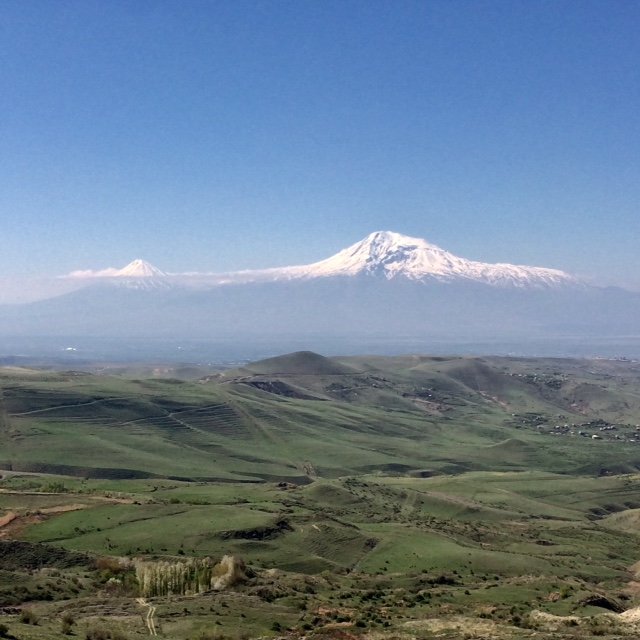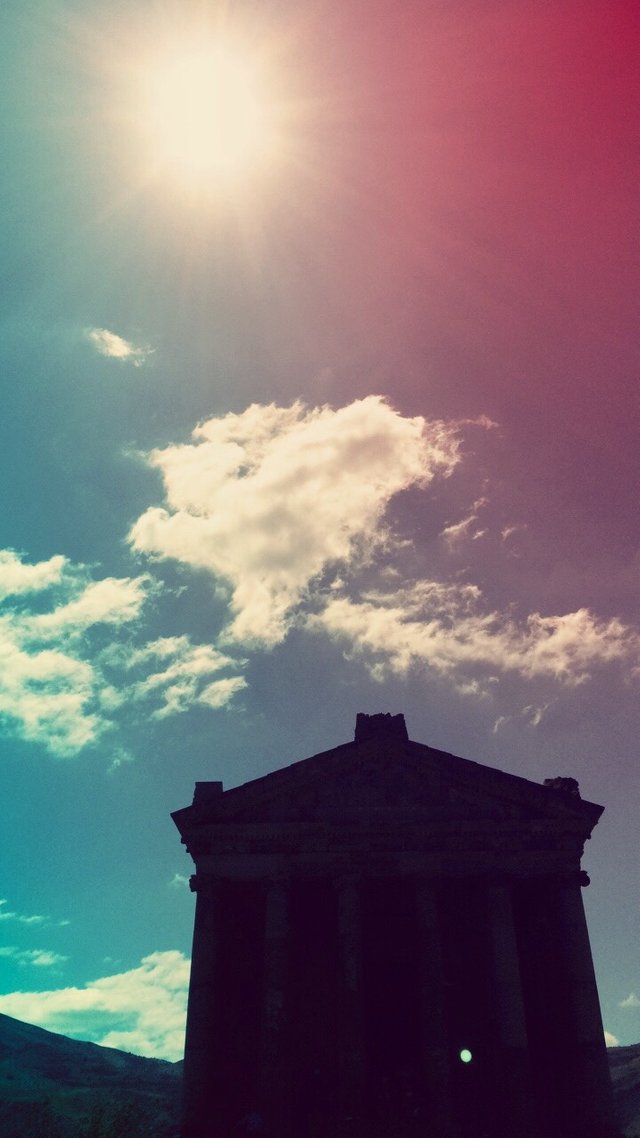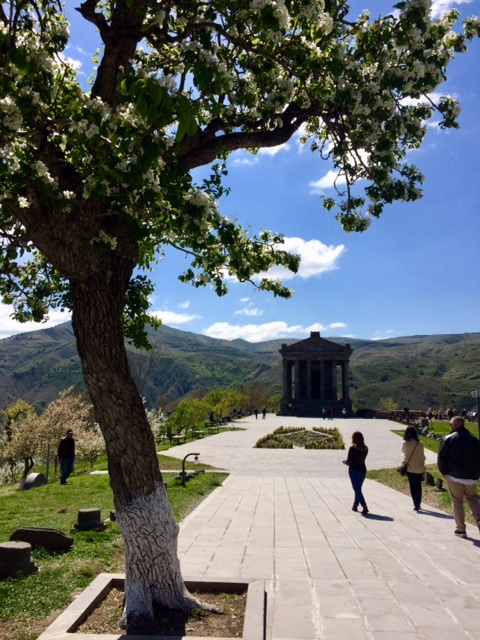Armenia, the temple of Garni
I recently had the great fortune to take a trip to Armenia, and what I brought home was much better than dried apricots and brandy Ararat (which i got, mind you).
Much more than the two kilos gained because of the excellent food, and more beautiful than the silver earrings bought at the Yerevan market.
The treasure I brought here is composed of the beauty of the people encountered, the beautiful moments spent, the experiences I made, the places I’ve seen.
You could object: but is not it always like this at the end of a trip?
Yes, but this time… it’s even more.
THE LAST PAGAN TEMPLE
Armenia adopted Christianity even before Rome, in 301, thanks to Gregory the Illuminator. Before that, the country was profoundly pagan, with two very powerful deities at the head of the pantheon: the god Vahagn, lord of fire and light, and the goddess Anahit, lady of fertility and mother of all Armenians. With various figures borrowed from neighboring peoples, such as the powerful Mithras, to which the temple of Garni is dedicated.
Garni is the only pagan temple that survived the Christian destructions (because as usual the power of the present destroys the symbols of the power of the past).
The temple was part of a fortress that stood on the promontory at the confluence of the Azat and Garni rivers, built in Hellenistic style with huge blocks of basalt, quarried from the surrounding mountains, and adorned with 24 columns (like the hours of the day) in Ionic style.
The lucky of the temple lied in the fact that it was be the place chosen by the Armenian rulers of the period to spend the summer holidays – around fourth century AD. - during the Roman domination; for this reason - precisely for the insistence of the queen of the time - it managed to be spared.
But there is more: in this area, before the temple that can be seen today (and that was rebuilt after an earthquake in the seventeenth century) there was another important place of worship, dating back to the period of the reign of Urartu, third millennium before Christ.
I arrived here on an April morning from the capital Yerevan, covering the distance in about an hour. After three days of rain and snow in the mountains, the turquoise sky was really a nice surprise, and certainly I felt butterflies in my stomach when I saw it as a background and contrast to the holy Mount Ararat, appearing behind a bend.
A truly exciting vision, an impressive presence. Even after my return home I was looking for his silhouette in every mountain I saw.
The sister of the Ararat, the Aragats, also showed up. A little less high, but beautiful. Both mountains were covered with snow, which shone in the sun. An unforgettable view.

Arrived at Garni I entered the archaeological park. The temple, which from a distance seems very small, gets bigger from closer, and those that seemed normal steps (nine, perfect number), are almost insurmountable from close up. It is necessary to bending in order to "take the run-up" so as to climb the next one: this is exactly what the architects wanted, that anyone who approached the temple would bow.

The trees in the surroundings are in bloom and the air is fragrant. It really seems to be in another time, one might expect the appearance of boys in peplos and sandals.
I'm now in the temple, with another thirty tourists.
The statue of Mithras is no longer inside, no one knows where it's gone.
I wait for noon, because at that hour, the sun enters from an opening on the ceiling to point on a precise point on the floor. It is unbelievable but this is exactly what happens, another place built according to precise laws, those of Sacred Geometry dear to the Pythagoreans.
Next to the temple was the summer residence of the King and Queen and even their private baths, Roman-style baths, complete with tepidarium, calidarium and frigidarium (with warm, warm and cold water, the first two obtained from sophisticated systems of water heating).
Parts of a large mosaic are also survived, and can be seen today.
There is a curious inscription right on the mosaic, which reads: "I worked, but I was not paid". Who could write such a thing? Bets are still open.

After a photo session, I spent a few minutes admiring the landscape that can be enjoyed from up here. The basalt formations called "organ pipes" are truly breathtaking, they seem carved by many patient stonemasons. The rivers cannot be seen almost from up here. The air is fresh.
It's time to get back to the bus. Going back, on the road to Yerevan, I will see again the Ararat and the Aragats.
I look back one last time to fix this vision in my mind, thanking the gods that surely still hang out around here.

Stunning photos and an interesting read, thank you!
Thank you all-life from the bottom of my heart :)
Congratulations @beawanderwoman! You have completed some achievement on Steemit and have been rewarded with new badge(s) :
Click on any badge to view your own Board of Honor on SteemitBoard.
For more information about SteemitBoard, click here
If you no longer want to receive notifications, reply to this comment with the word
STOPWow, I am amazed I love the Board of Honor... hope to be worthy of the reward and get some more badges! :)
Congratulations! Your high-quality travel content caught our attention and has earned you a partial upvote. We love your hard work and hope to encourage you to continue to publish strong travel-related content. Thank you for using #travelfeed
I am profoundly honoured for this achievement, thank you so much @travelfeed for the encouragement! Hope to keep on producing good articles, I will surely work hard for it.
We can't wait to see more!